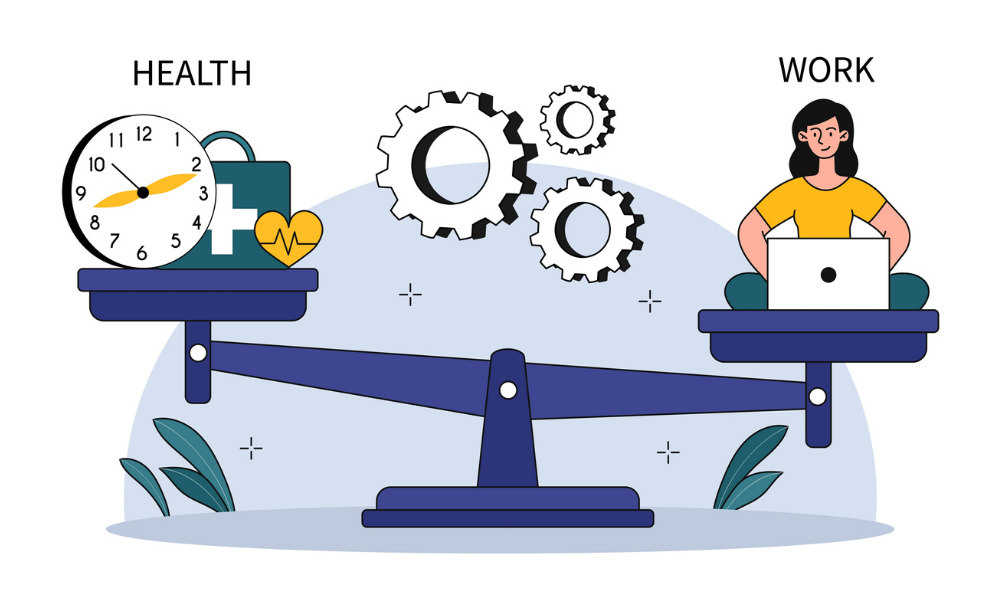
Poor mental health is costing Australian businesses billions. What can managers do about it?

Mental health conditions such as depression and anxiety cost Australian businesses over $39 billion each year in lost productivity, incapacity and absenteeism, according to the 2020 report by the Productivity Commission Inquiry.
It is estimated that 1 in 6 working Australians experience poor mental health at any one time. When left untreated in the workplace, mental health issues can result in extended periods of sickness leave as well as presenteeism, where a person shows up but isn’t as effective in their role.
According to Dr Aimee Gayed, postdoctoral research fellow and registered psychologist at Black Dog Institute, worker compensation claims due to psychological injury are also rising. The active cost in New South Wales is around $1 billion, which doesn’t take into account absenteeism or loss of productivity.
She notes that there are several risk factors which could impact the wellbeing of employees, and understanding these is vital.
“Many factors can lead to poor mental health, and they’re not necessarily all work-related,” Dr Gayed told HRD. “However, workplaces have a legal obligation to address mental health factors, regardless of the cause. More than just a requirement, it also makes good business sense to ensure a mentally healthy workplace, as this results in reduced rates of sickness absence and boosts performance levels. It also helps attract and retain skilled employees”
“Risk factors can include organisational aspects such as the work environment or the psychosocial safety climate, which is how much the psychological health of employees is valued by the organisation,” she explains.
“There are also team factors, and that comes down to how supportive your colleagues and managers are. Then there are job-specific factors like workload and the amount of control you have in your role, and we know that high-demand and low-control roles can lead to a lot of job strain.”
So what should organisations do? WHO released a guideline for mental health at work in 2022, and one of its key recommendations was manager training – something Dr Gayed says is a crucial starting point.
She notes that a lot of the risk factors can be modified to become ‘protective’ factors. For example, modifying an employee’s level of job control or manager support can have significantly positive outcomes, and the manager-employee relationship in general has been shown to be critical to wellbeing.
“We have conducted an analysis of observational data which showed that staff who report higher levels of manager support have lower levels of psychological distress, which really highlights the importance of the manager-employee relationship,” Dr Gayed says.
“You should also think about what modifications can be implemented at the individual job level to make sure that the impact of those risk factors are minimised.
“A good starting point is just knowing what those risk factors are, and reflecting on how workers are responding to your work environment. But you can also straight up ask employees what aspects of their job they find difficult, and come up with a plan to address those in partnership.”
Through randomised controlled trials, Black Dog Institute has found significant value in manager training – particularly the kind that goes beyond awareness to also include skill building and development.
Dr Gayed notes that it’s particularly important to equip managers on how to initiate mental health-related conversations as managers can be hesitant to do so, or are often unsure if that’s their duty. This approach has already shown some promising results – Black Dog Institute ran a trial with Fire and Rescue New South Wales, and the figures are very encouraging.
“We found that by upskilling managers in how to initiate mental health conversations with staff, what signs to look out for, how to support employee recovery and how to build good mental health in the workplace, we saw a reduction in sickness and absence rates over a six month period,” Dr Gayed says.
“We also did an economic analysis, and the training equated to a $10 return for every $1 spent on training. Those numbers really speak volumes on how investing in training can support your employees and organisation in the long term.”
To find out more about manager mental health training and how it can help you reduce the cost of poor mental health, click here.
Black Dog Institute is a global leader in mental health research and the only medical research institute in Australia to investigate mental health across the lifespan.